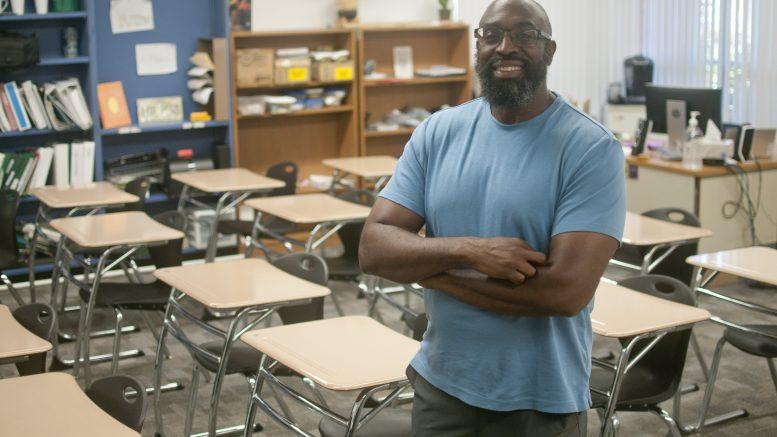Breaking the Cycle: Sacramento County Probation works with community organizations to help juveniles changes their lives
From Sacramento News and Review.
SACRAMENTO, Calif. — December 19, 2023 – Josef Gray is fighting against many forces as he tries to help young people stay clear of the justice system. Mostly, though, he is fighting a word.
Inevitable.
That’s how it seemed for him and his childhood friends from South
Sacramento, who wound up tangled in the system. Wrong place,
wrong time, wrong choice, and a story that seemed to repeat on an
endless loop.
For Gray, it meant three years in the probation system. But it
also meant a determination to chart a different course for the
kids coming up behind him.
Gray is the Sacramento Director for the Anti-Recidivism
Coalition, one of several community-based organizations that work
to break the cycle of young people in the justice system. The ARC
offers a variety of programs that touch on the needs of those
trying to move on—education, mental health care, housing,
creative arts and other job skills.
All working against the dark inevitable. And it appears to be
succeeding.
“We’ve seen a decrease over the last 10 years of young people involved in the juvenile justice system,” Gray says. “And I give credit for that to the leaders of Probation here.”
Gray says talking about law enforcement as partners can “get some people wrought up” but it’s the only way change happens.
“To try to work externally without working with them, it can’t work. It makes no sense,” he says.
In his work developing programs and dealing directly with youth,
Gray brings the perspective of someone who has walked down the
same path they are navigating.
“I won’t say someone who hasn’t been in the system can’t be
impactful,” he said. “Teachers and coaches can single-handedly
change lives.
“But there is a disconnect. I was caught with guns and when
someone who hadn’t been there said ‘You shouldn’t be doing that.
You’re going down the wrong path,’ my response, not just in my
mind but out of my mouth, was ‘You don’t know what it’s like to
walk through these neighborhoods.’”
…
“A lot of things we see are traumas expressing themselves. They are being what that community tells them they need to be. But that’s not who they are, at their core. They haven’t really developed into who they are.”
If Gray comes to the task from one side, Tyrone Weaver comes up
from the other.
Weaver came from the probation department to his work as a school
counselor and the leader of the Capacity Changers program at the
Sacramento Youth Detention Facility.
Before starting the program, Weaver says he was known for his
“verbal judo” skills, the ability to talk down individuals to
preclude them being physically dealt with by security.
Those skills are the essence of the Capacity Changers program,
which is built around a series of themed group sessions called
encounters. There are separate encounters for new, high-risk, or
residents facing intense emotional or mental issues. There is an
encounter for fathers.
Weaver tries to delve deep into the thought processes that lead to destructive behavior. Sometimes, the approach can seem to come out of left field.
“Let’s throw something out there like ‘What’s the difference between the pen and the pencil and which would you want to use?’” he says. “Maybe you want the pen because it’s permanent. Maybe you want the pencil because who hasn’t made a mistake. Maybe that’s why you want the pen because you have no intention of correcting anything. “After awhile, it dawns on them, ‘Hey, Weaver, you’ve been talking about me all this time. Not the pen.’”
Weaver says he feels a particular connection to new residents, saying, “That’s when you get the highest level of introspection.”
…
Within the County Probation Department, the Juvenile Field
Services Division provides an array of programs that include
connecting young people on probation at moderate to high risk
with counseling and various other supports.
Belen Betancourt, a deputy probation officer previously assigned to Juvenile Field who now works in Juvenile Court, says the program offers general counseling, as well as targeted counseling in areas such as substance abuse and anger management. Individuals with transportation issues can meet with counselors at school or in the community.
“And they always get another chance if they walk away,” Betancourt says. “The ones who have disenrolled usually want to get back in.”
The Probation Department helps community organizations work together, and the organizations themselves are constantly evolving.
“Our program is built to work with the formerly incarcerated,” Gray said. “It’s effective, but we’re on the back end. I think some of the approaches could work on the front end (to prevent incarceration). Maybe we can prevent these young people from losing decades to the system.”
Read the full article here.

